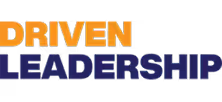Leadership Development Courses in Seattle, WA


Leadership Training Leadership Development Courses in Seattle, WA
Effective leadership in Seattle requires more than theory. It demands practical skills for leading hybrid teams, navigating rapid industry shifts, and sustaining high performance through frequent change. Our leadership development courses focus on building three core competencies essential to Pacific Northwest organizations: emotional intelligence, strategic thinking, and resilience. These programs are designed for leaders at every level — from emerging managers and university athletics coaches to senior executives in tech, healthcare, and nonprofit sectors across Seattle.
Why Seattle leaders need targeted leadership development
Seattle’s ecosystem — dense with technology firms, mission-driven nonprofits, complex supply chains, and competitive collegiate athletics — creates unique leadership challenges:
- Remote and hybrid teams across Pacific and global time zones
- High-change environments driven by product cycles and funding rhythm
- Employee burnout during long rainy seasons and high cost of living pressures
- Cross-sector collaboration demands (public, private, nonprofit)
- Performance expectations tied closely to measurable outcomes and culture
Leadership training in Seattle must therefore be practical, experiential, and measurable. Programs emphasize in-the-moment application so participants transfer learning directly to their teams.
Common leadership issues we address in Seattle
- Limited self-awareness and emotional regulation under pressure
- Difficulty aligning day-to-day decisions with longer-term strategy
- Inconsistent coaching and performance conversations across managers
- Low cross-functional collaboration and unclear accountability
- Trouble sustaining team engagement during remote work cycles
Who typically benefits
- Emerging leaders promoted into people management roles
- Mid-level managers responsible for cross-functional delivery
- Senior leaders driving strategic change and culture transformation
- University athletics staff and coaches focused on team performance and resilience
- HR and OD professionals building internal leadership pipelines
Course structure and cohort formats
Our courses combine experiential workshops, assessments, coaching, and on-the-job application. Typical cohort options include:
- Immersive Intensive (3 days + follow-up): An in-person residency in Seattle focused on core skill building, group simulations, and immersive practice, followed by a series of virtual labs.
- Hybrid Cohort (8–12 weeks): Weekly 90-minute live sessions plus self-paced modules and peer coaching groups. Designed for distributed teams balancing work and learning.
- Executive Pathway (6–12 months): Quarterly 2-day residencies, monthly 1:1 coaching, and a capstone strategic project aligned to organizational priorities.
- Team Execution Lab (custom): On-site sessions for intact leadership teams to improve alignment, decision-making rhythms, and execution cadences.
Cohorts are intentionally small to preserve psychological safety and maximize feedback cycles. Schedules typically align to local business calendars with evening or mid-day options to accommodate Seattle’s tech and public sector rhythms.
Assessment tools and diagnostics
We begin with validated diagnostics to create personalized development plans and track progress. Tools commonly used include:
- Competency 360 assessments (multi-rater feedback aligned to competency rubrics)
- Emotional intelligence inventories and scenario-based EI practice
- Strategic thinking assessments and case-based evaluations
- Resilience and stress-response inventories
- Situational judgment tests and role-play evaluations
- Behavioral interviews and manager observation checklists
- Team health surveys and engagement pulse tools
Baseline data informs individual learning objectives and cohort design. Assessment results are translated into clear, observable behaviors with behavioral anchors so leaders know exactly what to practice.
How progress is measured
Measurement centers on observable behavior change and business impact rather than attendance. Typical measurement approach:
- Baseline assessment at program start (360, EI, strategic simulation)
- Short-cycle feedback (30, 60, 90 days) using pulse surveys and manager check-ins
- Application checkpoints (behavioral observations, meeting audits, project outcomes)
- KPI alignment review (team engagement, retention, delivery metrics)
- Longitudinal follow-up at 6 and 12 months to assess sustained change and ROI
Progress dashboards convert qualitative feedback into competency scores and track individual learning plans. We pair quantitative metrics with narrative coaching notes to maintain nuance.
Learning methods and what leaders actually do
- Experiential simulations that recreate Seattle-specific scenarios (remote product launches, cross-organizational partnerships, crisis response)
- Structured role-plays practicing feedback, conflict resolution, and strategic conversations
- Real work projects that deliver measurable outcomes for the organization
- Coaching and peer coaching for accountability and reflective practice
- Microlearning modules for on-demand reinforcement and spaced repetition
- Leadership labs where participants practice new behaviors with live teams
This combination ensures skill acquisition, repeated practice, and real-world transfer.
Typical outcomes for Seattle participants
- Improved emotional regulation and better team psychological safety
- Clearer strategic prioritization and faster decision cycles
- Stronger performance conversations and reduced variance across managers
- Higher team engagement and lower turnover, especially in remote/hybrid contexts
- Increased resilience during business cycles and environmental stressors
Long-term development pathways
Leadership growth does not end at course completion. Effective pathways include:
- Ongoing coaching: scheduled 1:1 coaching to sustain new habits
- Stretch assignments: rotational projects that expand scope and strategic exposure
- Mentorship circles: peer cohorts and senior mentors for continued accountability
- Certification tracks: competency-based milestones and portfolio reviews
- Organizational integration: aligning leadership development with performance management, succession planning, and talent pipelines
- Communities of practice: ongoing forums for sharing best practices tailored to Seattle industries
Sustained investment creates leaders who can both execute and develop future leaders, strengthening organizational resilience in the long term.
Final note on fit and readiness
These leadership courses are designed for leaders ready to commit time to practice and to apply learning to measurable workplace challenges. Programs are tailored to Seattle contexts — from tech startups to collegiate athletics — and built to create durable behavior change that improves both culture and outcomes. If your organization needs leadership development that connects assessment, experiential learning, and measurable business impact, these courses provide a structured, localized pathway for leader and team transformation.

